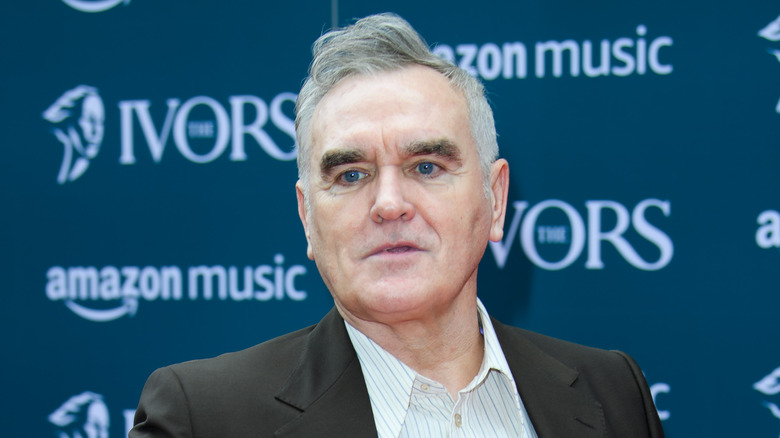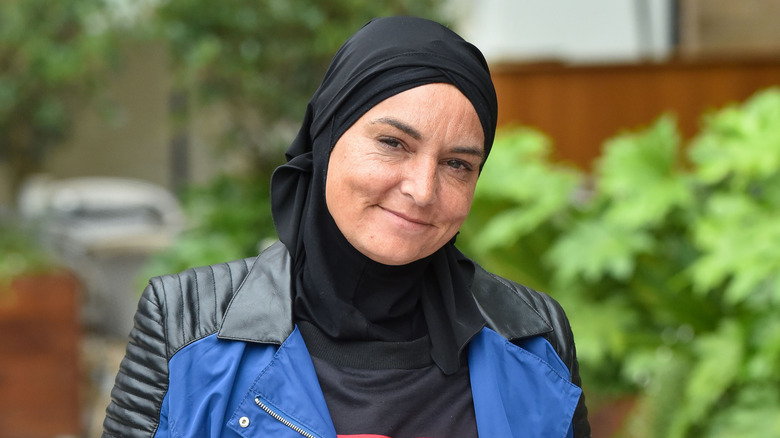Morrissey Calls Out Sinéad O'Connor's Supporters After Her Tragic Death
After the tragic news of Sinéad O'Connor's death rocked the music world, the fans who had admired her joined those who had worked with her and knew her best in paying tribute to the firebrand performer who broke the mold in a manner that was unacceptable to some. Among those joining the chorus of voices praising the Irish singer were The Smiths members Morrissey and Mike Joyce. The latter played backup for O'Connor after The Smiths' breakup in the '80s, as did his late bandmate Andy Rourke. Two months before her death, O'Connor tweeted a short message paying tribute to Rourke after he died from pancreatic cancer. Joyce also kept his tweet about the loss of O'Connor brief, writing, "Awful news tonight. Was honored to work with such an incredible artist."
O'Connor was 56 years old when she died, and her management team said she had been busy working on new music. This was a testament to the tenacity of the singer, who often found the entertainment industry a hostile place; her career got derailed — and she got banned from "Saturday Night Live" — for tearing up a picture of Pope John Paul II. When Morrissey addressed O'Connor's death, he was anything but brief. He also did it in a manner not unlike the way the "Nothing Compares 2 U" would call out those who wronged her, shaming the entertainment industry for shunning a brilliant artist and failing her miserably in her time of need.
Morrissey's bleak reminder of what Sinéad O'Connor endured
In a post on his website, Morrissey took the media and Sinéad O'Connor's supposed supporters in the music industry to task for performing an about-face in the wake of her death. He pointed out that she'd struggled to keep a foothold in her industry because many didn't want to work with her due to her outspokenness. "There is a certain music industry hatred for singers who don't 'fit in' (this I know only too well), and they are never praised until death — when, finally, they can't answer back," he wrote. He also called out the media for happily publishing negative headlines about O'Connor while she was alive, only to turn around and fawn over her after she died.
In a 2021 interview with The New York Times, O'Connor spoke about the treatment she received from the press because of her unapologetic behavior, saying she actually regretted the success of her chart-topping album, "I Do Not Want What I Haven't Got." Said the singer, "The media was making me out to be crazy because I wasn't acting like a pop star was supposed to act."
Morrissey also blasted anyone who had the means to help O'Connor — who once revealed on "Dr. Phil" that she had attempted suicide multiple times — but had failed to do so. "She was harassed simply for being herself," he wrote. "Her eyes finally closed in search of a soul she could call her own."


